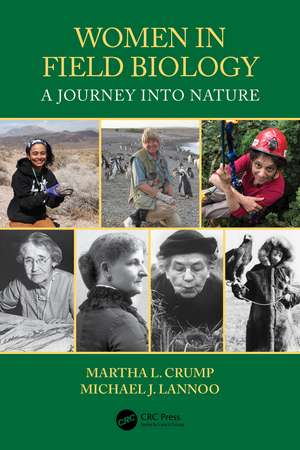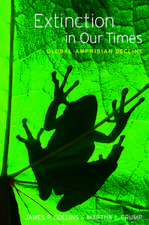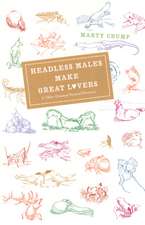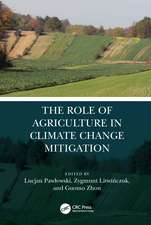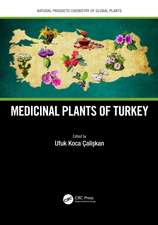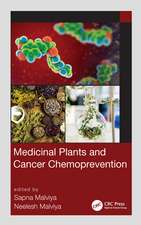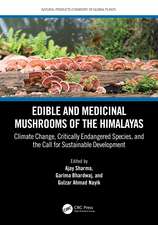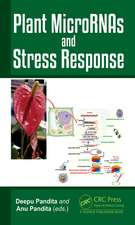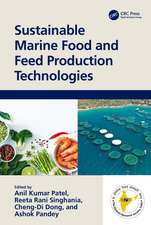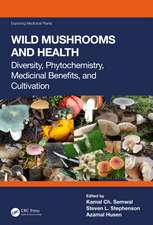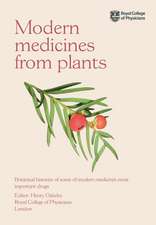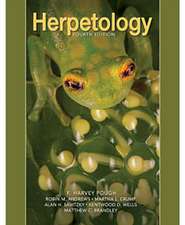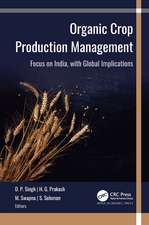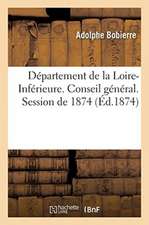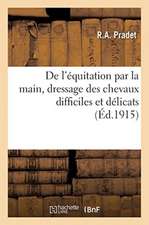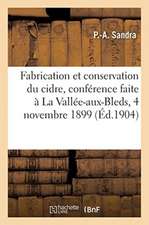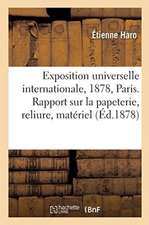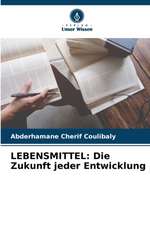Women in Field Biology: A Journey into Nature
Autor Martha L. Crump, Michael J. Lannooen Limba Engleză Paperback – 23 aug 2022
For a broader perspective, we profile selected European women field biologists, but our primary focus is the journey of women field biologists in North America. Each woman highlighted here followed a unique path. For some, personal wealth facilitated their work; some worked alongside their husbands. Many served as invisible assistants to men, receiving little or no recognition. Others were mavericks who carried out pioneering studies and whose published works are still read and valued today. All served as inspiration and proved to the women who would follow that women are as capable as men at studying nature in nature. Their legacy lives on today. The 75 female field biologists interviewed for this book are further testament that women have the intellect, stamina, and passion for fieldwork.
| Toate formatele și edițiile | Preț | Express |
|---|---|---|
| Paperback (1) | 326.49 lei 3-5 săpt. | +22.67 lei 6-12 zile |
| CRC Press – 23 aug 2022 | 326.49 lei 3-5 săpt. | +22.67 lei 6-12 zile |
| Hardback (1) | 782.44 lei 6-8 săpt. | |
| CRC Press – 23 aug 2022 | 782.44 lei 6-8 săpt. |
Preț: 326.49 lei
Nou
Puncte Express: 490
Preț estimativ în valută:
62.47€ • 65.58$ • 51.85£
62.47€ • 65.58$ • 51.85£
Carte disponibilă
Livrare economică 20 martie-03 aprilie
Livrare express 05-11 martie pentru 32.66 lei
Preluare comenzi: 021 569.72.76
Specificații
ISBN-13: 9780367820350
ISBN-10: 0367820358
Pagini: 316
Ilustrații: 116 Halftones, black and white; 116 Illustrations, black and white
Dimensiuni: 156 x 234 x 20 mm
Greutate: 0.45 kg
Ediția:1
Editura: CRC Press
Colecția CRC Press
ISBN-10: 0367820358
Pagini: 316
Ilustrații: 116 Halftones, black and white; 116 Illustrations, black and white
Dimensiuni: 156 x 234 x 20 mm
Greutate: 0.45 kg
Ediția:1
Editura: CRC Press
Colecția CRC Press
Public țintă
Adult education, General, Postgraduate, Professional, Professional Practice & Development, and Undergraduate AdvancedCuprins
Preamble
Section 1: Historical Perspective
Chapter 1: Introduction
Origins: Europe
Origins: North America
Chapter 2: Pre-1880 (Late Age of Discovery)
Europe
North America
Chapter 3: 1880 to 1916 (Gilded Age)
Chapter 4: 1917 to 1945 (War and Interwar Years)
The Chicago plant ecologists
The Chicago animal ecologists
The Nebraska/Minnesota plant ecologists
The Wisconsin limnologists
The Cornell legacy
Elsewhere in the United States
Chapter 5: 1945 to 1972 (Postwar Years)
Chapter 6: 1972 to Present (Civil Rights Era)
Section 2: Current Perspectives
8. Chapter 7: Backgrounds, Paths, and Careers
9. Chapter 8: Experiences and Perspectives
Role models and mentors
Tales from the field
Joys and challenges of motherhood and field biology
Advocacy for women: science outreach: service to
the profession
Are there advantages of being a woman in the field?
Hardships and challenges
Subtle or overt message that females are intellectually
inferior to males
Prevented from doing something because of being a
woman
Need to prove self
Safety issues/Vulnerability as a woman
Sexual harassment/Assault
Bullying/Harassment/Jealousy/Stealing
Appearance
Other challenges
Challenges associated with being a woman of color
in field biology Microaggressions (and some not so micro)
Positive change
Increasing diversity and inclusivity
"Words of wisdom" for the next generation
Section 3: Looking Toward the Future
Chapter 9: Ongoing Challenges and Moving Forward
Gender bias in science
Prove-it-again
The tightrope
The maternal wall
Tug of war
Isolation
Additional challenges faced by women field biologists
Ethnic and racial minorities in field biology
Moving forward
Section 1: Historical Perspective
Chapter 1: Introduction
Origins: Europe
Origins: North America
Chapter 2: Pre-1880 (Late Age of Discovery)
Europe
North America
Chapter 3: 1880 to 1916 (Gilded Age)
Chapter 4: 1917 to 1945 (War and Interwar Years)
The Chicago plant ecologists
The Chicago animal ecologists
The Nebraska/Minnesota plant ecologists
The Wisconsin limnologists
The Cornell legacy
Elsewhere in the United States
Chapter 5: 1945 to 1972 (Postwar Years)
Chapter 6: 1972 to Present (Civil Rights Era)
Section 2: Current Perspectives
8. Chapter 7: Backgrounds, Paths, and Careers
9. Chapter 8: Experiences and Perspectives
Role models and mentors
Tales from the field
Joys and challenges of motherhood and field biology
Advocacy for women: science outreach: service to
the profession
Are there advantages of being a woman in the field?
Hardships and challenges
Subtle or overt message that females are intellectually
inferior to males
Prevented from doing something because of being a
woman
Need to prove self
Safety issues/Vulnerability as a woman
Sexual harassment/Assault
Bullying/Harassment/Jealousy/Stealing
Appearance
Other challenges
Challenges associated with being a woman of color
in field biology Microaggressions (and some not so micro)
Positive change
Increasing diversity and inclusivity
"Words of wisdom" for the next generation
Section 3: Looking Toward the Future
Chapter 9: Ongoing Challenges and Moving Forward
Gender bias in science
Prove-it-again
The tightrope
The maternal wall
Tug of war
Isolation
Additional challenges faced by women field biologists
Ethnic and racial minorities in field biology
Moving forward
Notă biografică
Martha L. Crump is Adjunct Professor in the Biology Departments at Utah State University and Northern Arizona University. She has extensive field experience working with amphibians in Latin America, with fieldwork concentrated mainly in Costa Rica, Brazil, Ecuador, Argentina, and Chile. Crump received the Distinguished Herpetologist Award from The Herpetologists’ League (1997), and the Henry S. Fitch Award for Excellence in Herpetology from the American Society of Ichthyologists and Herpetologists (2020). She is Past-President of the Society for the Study of Amphibians and Reptiles.
Crump is the author of over 60 scientific papers, one of six authors on Herpetology (college-level textbook), co-author of Extinction in Our Times: Global Amphibian Decline, and author of five popular scientific books, most recently A Year with Nature: An Almanac (University of Chicago Press, 2018). In Search of the Golden Frog (University of Chicago Press, 2000) is Crump’s travel/adventure/memoir story of fieldwork in Central and South America. She is also author of four children’s books, including the award-winning The Mystery of Darwin’s Frog.
Michael J. Lannoo is Professor of Anatomy and Cell Biology at Indiana University and an affiliate of the Illinois Natural History Survey at the University of Illinois, and Purdue University. He has considerable tropical and polar field experience in addition to his primary research emphasis on temperate systems. In 2001 Lannoo received the Parker/Gentry Award for Excellence and Innovation in Conservation Biology through The Field Museum of Natural History, Chicago, IL. This award honors "an outstanding individual, team or organization whose efforts are distinctive and courageous and have had a significant impact on preserving the world’s natural heritage, and whose actions and approaches can serve as a model to others." (see http://www.parkergentry.fieldmuseum.org/2001).
Lannoo is the author/editor of over 100 scientific papers and seven popular scientific books, including Leopold’s Shack and Ricketts’s Lab: The Emergence of Environmentalism, and most recently This Land is Your Land: The Story of Field Biology in America (University of Chicago Press, 2018).
Crump is the author of over 60 scientific papers, one of six authors on Herpetology (college-level textbook), co-author of Extinction in Our Times: Global Amphibian Decline, and author of five popular scientific books, most recently A Year with Nature: An Almanac (University of Chicago Press, 2018). In Search of the Golden Frog (University of Chicago Press, 2000) is Crump’s travel/adventure/memoir story of fieldwork in Central and South America. She is also author of four children’s books, including the award-winning The Mystery of Darwin’s Frog.
Michael J. Lannoo is Professor of Anatomy and Cell Biology at Indiana University and an affiliate of the Illinois Natural History Survey at the University of Illinois, and Purdue University. He has considerable tropical and polar field experience in addition to his primary research emphasis on temperate systems. In 2001 Lannoo received the Parker/Gentry Award for Excellence and Innovation in Conservation Biology through The Field Museum of Natural History, Chicago, IL. This award honors "an outstanding individual, team or organization whose efforts are distinctive and courageous and have had a significant impact on preserving the world’s natural heritage, and whose actions and approaches can serve as a model to others." (see http://www.parkergentry.fieldmuseum.org/2001).
Lannoo is the author/editor of over 100 scientific papers and seven popular scientific books, including Leopold’s Shack and Ricketts’s Lab: The Emergence of Environmentalism, and most recently This Land is Your Land: The Story of Field Biology in America (University of Chicago Press, 2018).
Descriere
Women are contributing to disciplines once the sole domain of men. Field biology has been no different. The history of women field biologists, embedded in a history largely made and recorded by men, has never been written.
